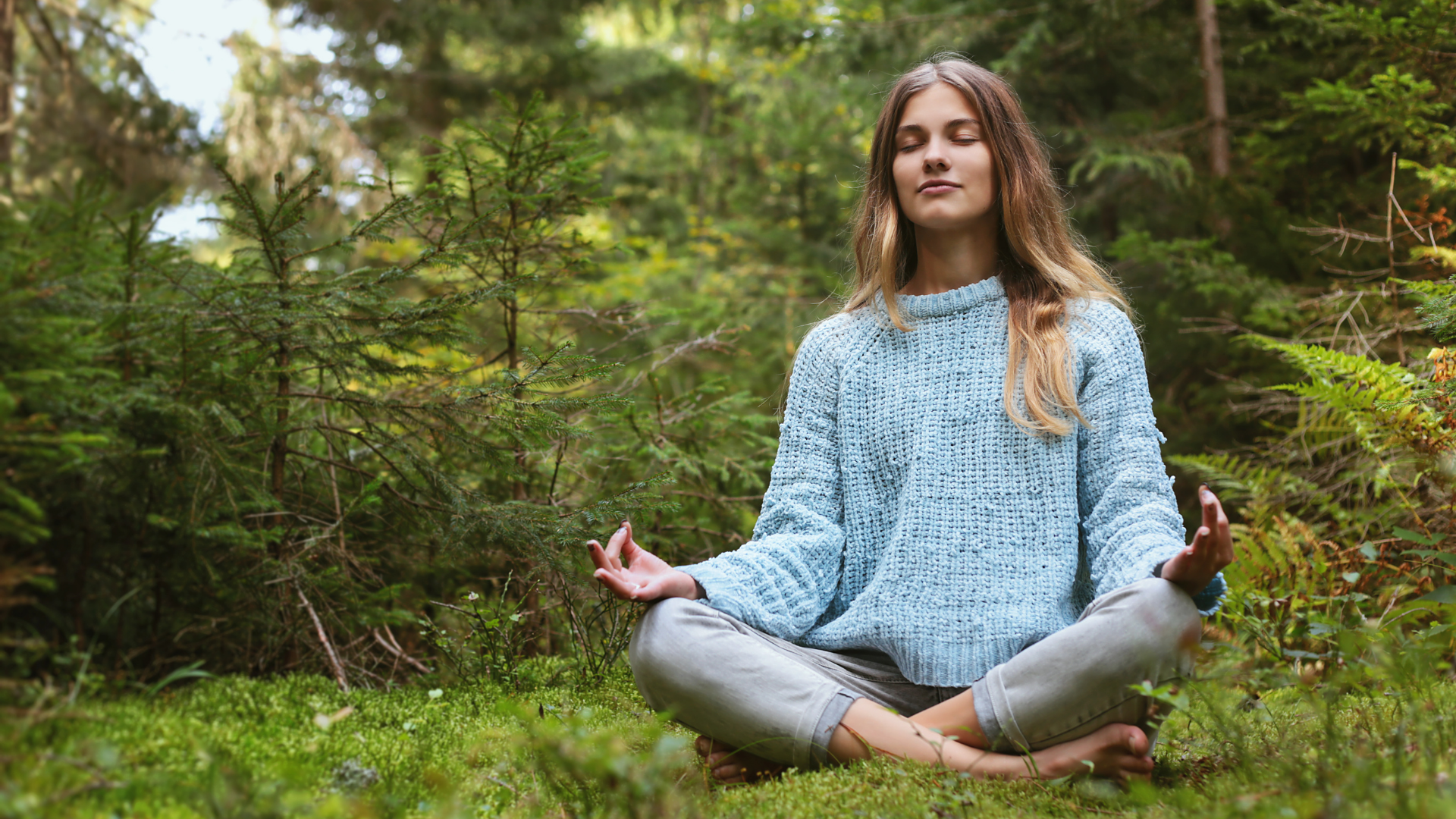Meditation offers many benefits in our hectic modern world, especially relating to managing and reducing stress. Other benefits of this healthy practice include increased mental focus, improved mood/positivity, enhanced self-awareness, reducing burnout, better emotion regulation, recentering yourself, being ‘present’ in the present moment, and better relaxation and sleep. For more details on such benefits, read here. Meditation is simple in principle – sit quietly, focus on a sensation such as your breath, and accept the flow of thoughts and feelings that arise. But, in practice, meditation can be challenging and so that’s why many meditation apps have been developed to help people start and/or work through their meditation journey. These are useful tools to make meditation easier, especially since meditation should be accessible for everyone, everywhere, at any time.
Meditation can benefit anyone, but it is particularly useful and impactful for the business world as many businesspeople experience high levels of stress and anxiety. Meditation improves your relaxation and fosters a focus/mindfulness on the present. Meditation can help to prevent employees’ burnout, by minimizing sensations and emotions relating to being overworked, frustrated, tense, unproductive, exhausted, etc. To learn more about this asset, read here.

Meditation also aids employees to focus on the present moment, therefore they’ll have increased focus and concentration which in turn improves productivity. Another business-related area that can be addressed using meditation is public speaking. It’s common for people to fear presenting in public, so meditation can alleviate such anxiety and fear (see here) and also can help you stay relaxed when you’re actually on stage (you accept the present moment as-is, etc.; see the description here). This is also a great way to center yourself and prepare before important meetings, conferences, etc.

Meditation apps usually have a sort of beginner’s course or program, especially with guided and structured meditations. Using an app (or several!) means you can easily choose from a variety of content and options, ranging in length (e.g. you could do even five minutes during a break from work, etc.) and in formality (i.e. how ‘guided’ they are). Even a short session has benefits! 10 minutes are all you need for better focus and taming your thoughts (read more here). Also, it could be useful for you to try out different styles of meditation to see what works best for you.
There are several types of meditation practice – some of the main ones are:
- Mindfulness meditation – this is the process of becoming fully present with your thoughts and emotions, observing them as they arise but without judging or dwelling on them; one popular form of this is Vipassana meditation (self-observation) from ancient India
- Guided meditation – here you form mental pictures or situations which you find relaxing; the practice is usually led by a guide/teacher, who encourages you to use as many senses as possible to enhance calmness in your space
- Focused meditation – this is useful for stress relief, as it allows you to focus your attention on a sound, sensation, or object rather than trying to achieve a cleared mind; as you turn your attention to the chosen target, your inner voice(s) will subside and you should feel more relaxed
- Transcendental/mantra meditation – in this technique a personally assigned mantra, such as a word, short phrase, or sound, is repeated in a specific way; this allows you to settle inward and produces a deep state of relaxation and rest, without too much concentration or effort
- Loving-kindness meditation – this is the practice of directing well wishes, kindness, and/or love toward others; you can recite specific words and/or phrases to evoke such warm-hearted feelings; usually the practitioner starts by reciting this to him/herself, then to a family or friend, and then to a larger group
- Progressive relaxation – the idea here is that the body’s muscle tension is a psychological response to anxiety, and so muscle relaxation should reduce anxiety; in this technique, you focus on slowly tensing up and then relaxing each muscle group (usually one group at a time); this improves your awareness of your physical sensations and helps you to reduce muscle tension; for more specific instructions, check out this guide
A few top meditation apps, and their benefits, are:
- Calm – probably the best app overall; this provides personalized recommendations based on your goals (e.g. increase happiness, reduce anxiety/stress, improve sleep, develop gratitude); there are 100+ guided meditations covering many such topics; especially useful for people who struggle to relax and/or fall asleep (the app has a library of sleep stories); music tracks for focus, relaxation, and sleep
- Headspace – this is another very popular app, and is great for beginners (though it has content for all levels); probably the best app for guided meditations; it has many guided meditations and options for different lengths of meditation; you can adjust the frequency of your practice and set up reminders; there are also videos and relaxing music
- Jack and Ferdi - a bleisure travel app dedicated to bleisure travelers. Discover amazing places to mediate and unwind while traveling in 200 cities around the globe. Whether you are traveling for business or leisure, the app will help you unwind, re-center, and discover unique meditation spots wherever you are.
- Smiling Mind – arguably the best free meditation app; psychologists developed this to help users practice mindfulness (paying attention to the present moment with openness and without judgment); the app has 300+ free meditations, along with calendar tracking and other stats; there are also body scan recordings
- Insight Timer – this app has a great variety of options, which could help you try a wide range of meditation styles; the app offers over 45,000 free meditations; there are also discussion groups and community features, and music tracks for relaxation and sleep; the paid version of the app grants you access to hundreds of courses lasting 7-10 days
- Ten Percent Happier – for “meditation skeptics” and beginners; this app teaches users abut meditation and provides podcasts, videos, talks, 500+ guided meditations on a wide range of topics, and sleep content; the app and website are super user-friendly; the content is based on the #1 New York Times bestselling book 10% Happier by Dan Harris
- Unplug – great for focus; offers livestream and on-demand meditation classes; 850+ videos; a variety of content (mindfulness, guided imagery, sound baths, breathwork, and more); there’s also a daily email linking to a short meditation of the day on the app
- Simple Habit – this makes it easy to get into the habit of daily meditation; there are various 5-minute exercises for different types of goals, personal situations, etc.
- Waking Up – this app explores the science and philosophy of meditation (for both beginners and advanced meditators), with a focus on mindfulness; users can learn about loving-kindness meditation, embodied awareness, and more; the app also has guided meditations
- Buddhify – this app’s specialty is targeted meditations for different mental health situations; users can create their own ‘wheel’ of tailored meditation practices
- Whil – this features meditation courses to help reduce stress and anxiety; it’s one of the few apps that also teaches users how stress can influence their physical and mental health; there are several tools useful for living a life of mindfulness
In addition to checking out these apps, you could also consult the Jack and Ferdi app for suggestions of great places to relax, unwind, and/or meditate around the world.

In conclusion, meditation practice yields lots of healthy and invigorating benefits for business travelers. As business travelers often face stressful situations, meditation is a great advantage for reducing distress and burnout, increasing mental focus, improving emotion regulation, enhancing self-awareness, and encouraging a focus on the present moment. With this relaxing and recentering, businesspeople can feel and perform their best.
